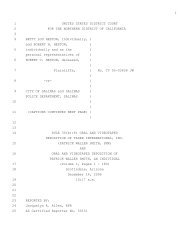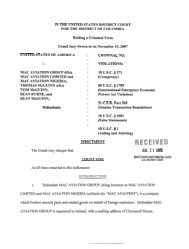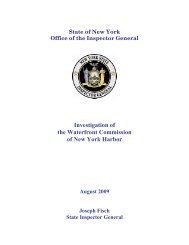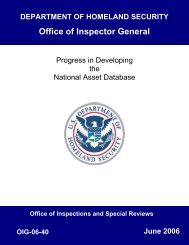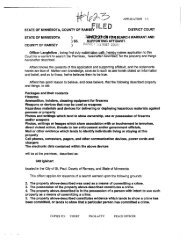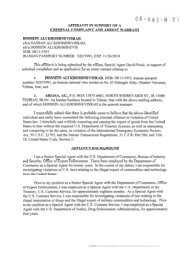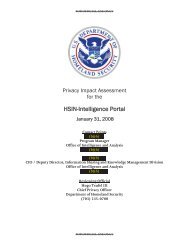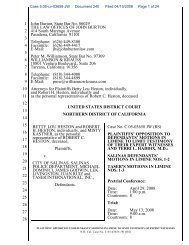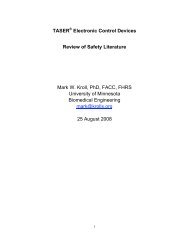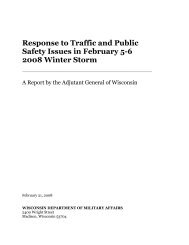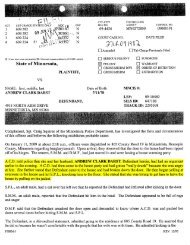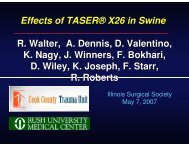04-473 - Garcetti v. Ceballos - Supreme Court of the United States
04-473 - Garcetti v. Ceballos - Supreme Court of the United States
04-473 - Garcetti v. Ceballos - Supreme Court of the United States
You also want an ePaper? Increase the reach of your titles
YUMPU automatically turns print PDFs into web optimized ePapers that Google loves.
Cite as: 547 U. S. ____ (2006)11Opinion <strong>of</strong> <strong>the</strong> <strong>Court</strong><strong>of</strong> protection, however, does not invest <strong>the</strong>m with a rightto perform <strong>the</strong>ir jobs however <strong>the</strong>y see fit.Our holding likewise is supported by <strong>the</strong> emphasis <strong>of</strong> ourprecedents on affording government employers sufficientdiscretion to manage <strong>the</strong>ir operations. Employers haveheightened interests in controlling speech made by an employeein his or her pr<strong>of</strong>essional capacity. Official communicationshave <strong>of</strong>ficial consequences, creating a need for substantiveconsistency and clarity. Supervisors must ensurethat <strong>the</strong>ir employees’ <strong>of</strong>ficial communications are accurate,demonstrate sound judgment, and promote <strong>the</strong> employer’smission. <strong>Ceballos</strong>’ memo is illustrative. It demanded <strong>the</strong>attention <strong>of</strong> his supervisors and led to a heated meeting wi<strong>the</strong>mployees from <strong>the</strong> sheriff’s department. If <strong>Ceballos</strong>’ superiorsthought his memo was inflammatory or misguided, <strong>the</strong>yhad <strong>the</strong> authority to take proper corrective action.<strong>Ceballos</strong>’ proposed contrary rule, adopted by <strong>the</strong> <strong>Court</strong><strong>of</strong> Appeals, would commit state and federal courts to anew, permanent, and intrusive role, mandating judicialoversight <strong>of</strong> communications between and among governmentemployees and <strong>the</strong>ir superiors in <strong>the</strong> course <strong>of</strong> <strong>of</strong>ficialbusiness. This displacement <strong>of</strong> managerial discretionby judicial supervision finds no support in our precedents.When an employee speaks as a citizen addressing a matter<strong>of</strong> public concern, <strong>the</strong> First Amendment requires a delicatebalancing <strong>of</strong> <strong>the</strong> competing interests surrounding <strong>the</strong>speech and its consequences. When, however, <strong>the</strong> employeeis simply performing his or her job duties, <strong>the</strong>re isno warrant for a similar degree <strong>of</strong> scrutiny. To hold o<strong>the</strong>rwisewould be to demand permanent judicial interventionin <strong>the</strong> conduct <strong>of</strong> governmental operations to a degreeinconsistent with sound principles <strong>of</strong> federalism and <strong>the</strong>separation <strong>of</strong> powers.The <strong>Court</strong> <strong>of</strong> Appeals based its holding in part on whatit perceived as a doctrinal anomaly. The court suggestedit would be inconsistent to compel public employers to



